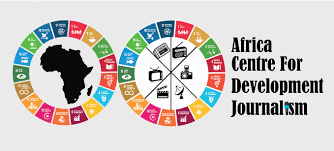OP-ED | AfCFTA: A time to rethink corporate governance in Africa, By Tumi Dlamini
Until the 1990s, African countries did not attach importance to corporate governance policies and practices. In 1994, South Africa became the first African country to adopt a code of corporate governance and it was not until 2003 that the continent’s biggest economy (Nigeria) followed suit.

Corporate Governance is defined as “the combination of rules, processes or laws by which businesses are operated, regulated or controlled”. Research by leading academics and practitioners show that well-governed companies deliver better economic performance and long-term sustainability. Hence, the fact that only 19 out of 55 African Union member states have thus far adopted a corporate governance framework, is a major cause for concern.
Of much more concern is the fact that most corporate governance frameworks in Africa have been adopted and adapted from Western and global standards designed to be applicable to the business and commercial environments that exist in developed countries. As such, corporate governance codes in Africa remain largely irrelevant, consequently compliance to the codes is minimal because the standards are ill-equipped to support the development of an African private sector dominated by MSMEs and the informal sector.
The fact that not many African countries have taken crucial steps to improve good corporate governance, coupled with the fact that existing codes appear to do little in terms of improving the competitiveness of businesses, raises serious questions about the readiness of AU countries and private sector companies to meaningfully participate in the implementation of the African Continental Free Trade Area (AfCFTA) Agreement.
Over the past two weeks, the South African government has stepped up its effort towards expanding its trade frontiers and exploring new African markets on behalf of the South African private sector. President Cyril Ramaphosa’s recently concluded four-country state visits to West Africa was timely and comes shortly after the conclusion of a highly successful 2nd Intra-African Trade Fair (IATF 2021) in Durban, South Africa.
By all accounts, the South African government appears to have finally decided to put its money where its mouth is by facilitating the expansion of South African business interests across the continent. The fact that the state visits to West Africa took place in the aftermath of the emergence of the Omicron variant of Covid-19 and its resultant imposition of travel bans on Southern African countries by the West, makes President Ramaphosa’s decision to undertake the state visits in the name of promoting intra-African trade, worthy of applause.
Yet, African countries must begin to focus on establishing corporate governance standards and practices, before the implementation of the AfCFTA gains momentum. To this end, the African Peer Review Mechanism (APRM) has conducted reviews and assessments across 24 AU member states, assessing their level of compliance with corporate governance standards.
APRM findings reveal the business sector in Africa to be dominated by SMEs and informal operators and that these dominant sectors continue to face a myriad of challenges, namely, lack of access to finance, inadequate skills, limited growth opportunities as well as continued extractive nature of multinationals doing business in Africa. These findings call for thoughtful questions about whether or not Africa’s corporate governance systems truly serve the continent’s interests or they are simply a set of rules that protect the interests of those whose rules we had blindly imported.
In its efforts to address these governance challenges within the private sector and promote best practices, the APRM has developed the African Principles and Guidelines on Corporate Governance (the African Principles). The development of the African Principles coincides with the coming into force and launch of the landmark AfCFTA Agreement, which is another crucial incentive for African governments to develop their individual corporate governance principles as a means of promoting intra-African trade.
The African Principles were formulated in the spirit of Ubuntu and therefore are grounded in our shared African values. Corporate governance in Africa must fully embrace African values including leveraging African Indigenous Knowledge Systems (IKS) as tools for promoting economic growth. The African corporate governance principles must promote economic regeneration and act as vehicles for the continent’s economic recovery, in the post Covid-19 period.
We cannot solve Africa’s problems by copy-pasting European policies as Africa’s rule books. Solutions to African challenges must also be uniquely African: African solutions to African problems. Consequently, the African Principles are adapted to the needs of Africa.
According to the African principles, corporate governance principles must guarantee that private sector companies operating on the continent make a positive contribution to Africa’s development by becoming involved in improving the livelihoods of local communities. Also, the principles say companies must uphold ethical leadership with conscience and intellectual honesty in business as well as addressing the empowerment of dominant sectors of the African economy – SMEs, the informal sector and family businesses, among others.
Likewise, the African Principles asserts companies must take into account global best practices in corporate governance while remaining aware of and respectful of the realities of the socio-cultural context of Africa. They must be underpinned by values that promote cooperation, dignity, respect, inclusiveness, diversity, mutual accountability, humanity and compassion. These are the shared African values guiding all forms of human conduct in life, business, and politics which apply to natural and legal persons.
Thanks to the AfCFTA, Africa has more than ever before now embarked upon a development trajectory with the potential to transform the lives and livelihood of the present and future generations of Africans. Yet, if we don’t take the bull by the horns under the AfCFTA, by redefining the way we do business, and instead continue to blindly copy-paste incompatible Western practices of doing business to the detriment of our shared values, we will have failed before we have even started implementing this groundbreaking trade pact.
Therefore, we must leverage the AfCFTA to rebuild and reconfigure our corporate governance systems so as to ensure that the private sector in Africa makes a meaningful contribution to our sustainable development. African leaders must act boldly. Now is not the time to bow to the dictates of foreign countries. After all, the COVID-19 pandemic has illustrated the ease with which the world’s major economies can isolate, exclude and disenfranchise African nations.
Hence, what the future clearly calls for is a more cooperative and collective approach to tackling the pandemic, including developing vaccine manufacturing capacity. Unless corporate governance practices are urgently prioritized, the AfCFTA’s aspirations of an integrated African market will remain a distant dream. That is to say, corporate governance rules will either be one of greatest catalysts for boosting intra-African trade or one of the major hindrances to enhancing it.
Tumi Dlamini is a corporate governance expert at the Continental Secretariat of the African Peer Review Mechanism (APRM) cum chairman of the Committee on African Principles and Guidelines on Corporate Governance. The views expressed in this article are those of the author and not necessarily of the APRM.














